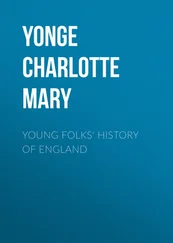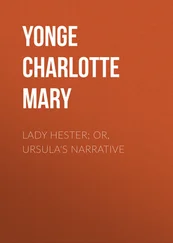Charlotte Yonge - Cameos from English History, from Rollo to Edward II
Здесь есть возможность читать онлайн «Charlotte Yonge - Cameos from English History, from Rollo to Edward II» — ознакомительный отрывок электронной книги совершенно бесплатно, а после прочтения отрывка купить полную версию. В некоторых случаях можно слушать аудио, скачать через торрент в формате fb2 и присутствует краткое содержание. Жанр: foreign_humor, Юмористические книги, literature_19, foreign_antique, на английском языке. Описание произведения, (предисловие) а так же отзывы посетителей доступны на портале библиотеки ЛибКат.
- Название:Cameos from English History, from Rollo to Edward II
- Автор:
- Жанр:
- Год:неизвестен
- ISBN:нет данных
- Рейтинг книги:4 / 5. Голосов: 1
-
Избранное:Добавить в избранное
- Отзывы:
-
Ваша оценка:
- 80
- 1
- 2
- 3
- 4
- 5
Cameos from English History, from Rollo to Edward II: краткое содержание, описание и аннотация
Предлагаем к чтению аннотацию, описание, краткое содержание или предисловие (зависит от того, что написал сам автор книги «Cameos from English History, from Rollo to Edward II»). Если вы не нашли необходимую информацию о книге — напишите в комментариях, мы постараемся отыскать её.
Cameos from English History, from Rollo to Edward II — читать онлайн ознакомительный отрывок
Ниже представлен текст книги, разбитый по страницам. Система сохранения места последней прочитанной страницы, позволяет с удобством читать онлайн бесплатно книгу «Cameos from English History, from Rollo to Edward II», без необходимости каждый раз заново искать на чём Вы остановились. Поставьте закладку, и сможете в любой момент перейти на страницу, на которой закончили чтение.
Интервал:
Закладка:
One Norman, the gallant Gilbert Fitz-Richard, deserves to be remembered as an exception to the grasping temper of his countrymen. He would accept neither gold nor lands for the services he had rendered at Hastings. He said he had come in obedience to the summons of his feudal chief, and not for spoil, and, now his term of service was at an end, he would go back to his own inheritance, with which he was content, without the plunder of the widow and orphan.
For it was thus that William first strove to satisfy his followers. Every rich Saxon widow or heiress who could be found was compelled to marry a Norman baron or knight; but when there proved to be not a sufficiency of these unfortunate ladies, he was obliged to find other pretexts less apparently honorable. Every noble who had fought in the cause of Harold was declared a traitor, and his lands adjudged to be forfeited, and this filled the Earldoms of Wessex and Sussex with great numbers of Normans, who counted their wealth at so many Englishmen apiece, and made no scruple of putting their own immediate followers into the manors whence they thrust the ancient owners. As to the great nobles, they were treated so harshly that they were all longing, if possible, to throw off the yoke, and make the stand which they should have made a year ago, when William had won nothing but the single, hard-fought battle of Hastings.
Some of the Norman adventurers took great state on them, all the more, probably, because they had been nobodies in their own country. One of the most haughty of all was the Spalding Viscount, Ivo, whose surname of Taillebois seems to betray somewhat of his origin in Anjou. He was noted for his pompous language and insolent bearing; he insisted on his vassals kneeling on one knee when they addressed him, and he and his men-at-arms took every opportunity of tormenting the Saxons. He set his dogs at their flocks, lamed or drowned their cattle, killed their poultry, and, above all, harassed a few brethren of the Abbey of Croyland, who inhabited a grange not far from Spalding, to such a degree, that he obliged them at last to retreat to the Abbey, and then filled the house with monks from Anjou; and though the Abbot Ingulf was William’s secretary, he could obtain no redress.
Such a neighbor as this was not likely to allow the re-instated Ediva to remain at Bourn in peace, and Hereward found that he must continue in arms, for her protection and his own. He placed his wife, Torfrida, in a convent, and, collecting his friends around him, kept up a constant warfare with the Normans, until at length he succeeded in fortifying the Isle of Ely, and establishing there what he called the Camp of Refuge, as it gave shelter to any Saxon who had suffered from the violence of the Normans, or would not adopt the new habits they tried to enforce.
The weak, helpless, and aged, were sheltered by the monastery and its buildings; the strong, enrolled in Hereward’s gallant band. Some of them were of higher rank than himself, and in order that he might be on a par with them, as well as with his Norman enemies, he sought the order of knighthood from his uncle, Abbot Brand.
The Normans in general were knighted by lay nobles, and though their prince, William Rufus, received the order from Lanfranc, they would not acknowledge Hereward as a knight, though they could not help respecting his truth, honor, and courage; and it was a common saying among them, that if there had been only four men like him in England, they should never have gained a footing there. No wonder, when he never hesitated to fight singly with seven Normans at once, and each of his five principal followers was a match for three. They were Ibe Winter, his brother-in-arms; Eghelric, his cousin; Ital; Alfric; and Sexwald.
Many fugitives of high rank did Hereward receive in his Camp of Refuge. He had nearly been honored by the presence of his hereditary sovereign, Edgar the Etheling, but the plan failed. He did, however, shelter his two cousins, Morkar and Edwin. They had suffered much from the insolence of the Normans, and experienced the futility of the promises in which they had trusted, until at length they had been driven to join a rising in the North. It had been quickly suppressed, and the worst of all the cruelties of the Normans had avenged it, while the two earls, now become outlaws, fled to the Camp of Refuge. Thence Edwin was sent on a mission to Scotland, but on the way he was attacked by a party of his enemies and slain, after a gallant resistance. He was the handsomest man of his time, and his betrothed, Agatha, was devotedly attached to him; it is even said that the stern William himself wept when the bloody head of his daughter’s lover was presented to him. A curious gold ornament has been of late years found in the field where Edwin was killed, and antiquaries allow us to imagine that it might have been a love-token from the Norman princess to the Saxon earl.
Another fugitive in Hereward’s camp was the high-spirited Abbot Frithric, whose steady opposition to the illegal encroachments of the Normans had given great offence to William. Once Frithric had combined with other influential ecclesiastics to require of the Conqueror another oath to abide by the old English laws, and thus brought on himself an accusation of rebellion and sentence of banishment. He assembled his monks, and told them the time was come when, according to the words of Holy Scripture, they must flee from city to city, bade them, farewell, and, taking nothing with him but a few books, safely reached the Camp of Refuge, where he soon after died.
Thorold, the new Norman Abbot of Malmesbury, kept a body of archers in his pay, and whenever his monks resisted any of his improper measures, he used to call out, “Here, my men-at-arms!” At length the Conqueror heard of his proceedings. “I’ll find him his match!” cried William. “I will send him to Peterborough, ‘where Hereward will give him as much fighting as he likes.”
To Peterborough, then, Thorold was appointed on the death of Hereward’s uncle, Abbot Brand, while the poor monks of Malmesbury received for their new superior a certain Guerin de Lire, who disinterred and threw away the bones of his Saxon predecessors, and took all the treasure in the coffers of the convent, in order that he might display his riches in the eyes of those who had seen him poor.
Yet all the Norman clergy were not such as these, and never should be forgotten the beautiful answer of Guimond, a monk of St. Leufroi, such a priest as Fitz-Richard was a knight. William had summoned him to England, and he came without delay; but when he was told it was for the purpose of raising him to high dignity, he spoke thus: “Many causes forbid me to seek dignity and power; I will not mention all. I will only say that I see not how I could ever properly be the head of men whose manners and language I do not understand, and whose fathers, brothers, and friends, have been slain by your sword, disinherited, exiled, imprisoned, or harshly enslaved by you. Search the Holy Scriptures whether any law permits that the shepherd should be forced on the flock by their enemy. Can you divide what you have won by war and bloodshed, with one who has laid aside his own goods for the sake of Christ? All priests are forbidden to meddle with rapine, or to take any share of the prey, even as an offering at the altar; for, as the Scriptures say, ‘He that bringeth an offering of the goods of the poor, is as one that slayeth the son before the father’s eyes.’ When I remember these commands of God, I am filled with terror; I look on England as one great prey, and dread to touch it or its treasures, as I should a red-hot iron.”
Guimond then returned to Normandy, uninjured by the Conqueror, who, with all his faults, never took offence at such rebukes; but the worldly-minded clergy were excessively affronted at his censure of their rapacity, and raised such a persecution against him that he was obliged to take refuge in Italy.
Читать дальшеИнтервал:
Закладка:
Похожие книги на «Cameos from English History, from Rollo to Edward II»
Представляем Вашему вниманию похожие книги на «Cameos from English History, from Rollo to Edward II» списком для выбора. Мы отобрали схожую по названию и смыслу литературу в надежде предоставить читателям больше вариантов отыскать новые, интересные, ещё непрочитанные произведения.
Обсуждение, отзывы о книге «Cameos from English History, from Rollo to Edward II» и просто собственные мнения читателей. Оставьте ваши комментарии, напишите, что Вы думаете о произведении, его смысле или главных героях. Укажите что конкретно понравилось, а что нет, и почему Вы так считаете.












